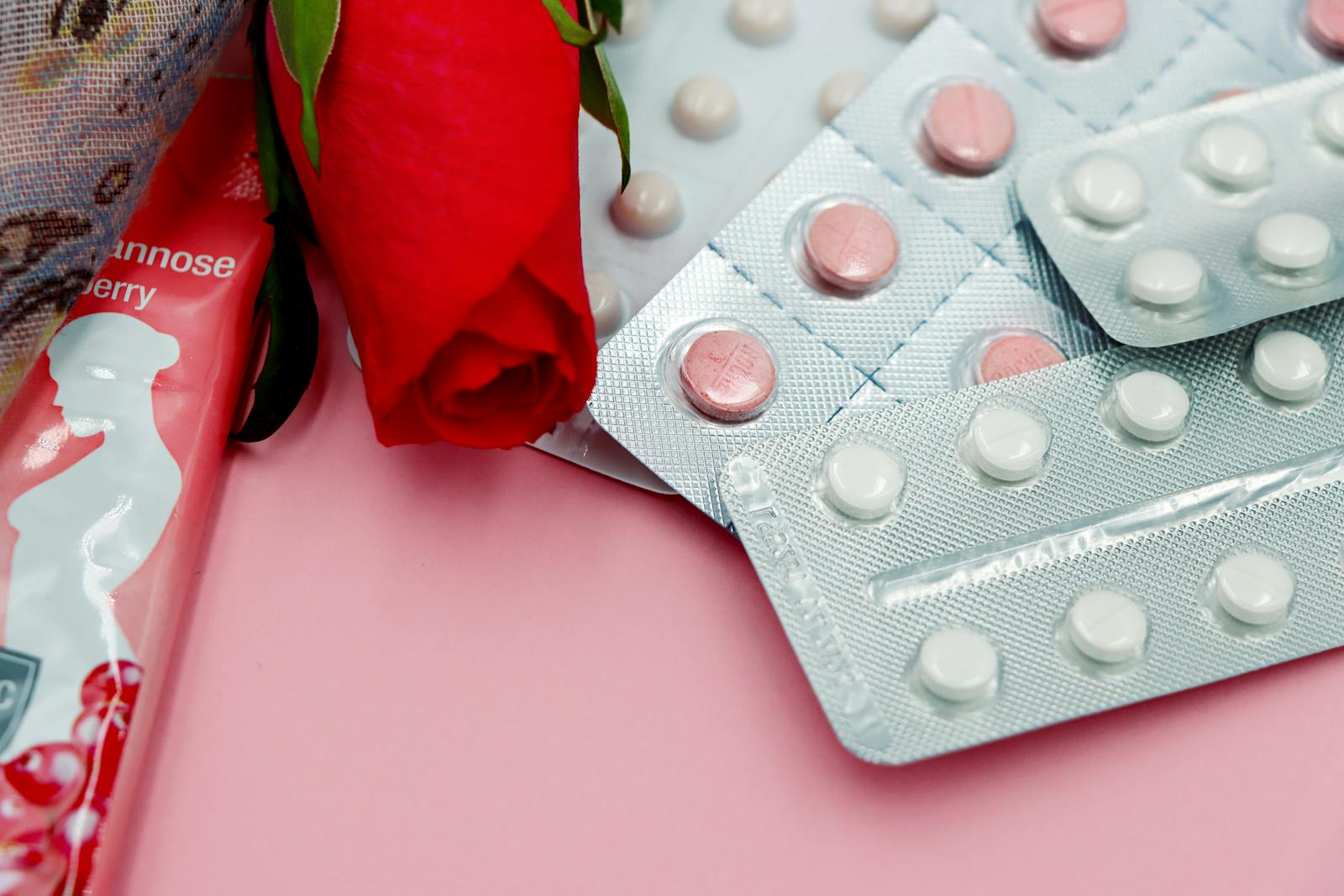
It’s Not Just in Your Head: The Powerful Link Between Hormones and Anxiety Before Your Period
If you’re a woman in your 30s or 40s and the week before your period feels like an emotional minefield, you are far from alone. That creeping sense of dread, the irrational worry, the sudden irritability over minor things. This isn’t a character flaw. It’s a powerful physiological response driven by your hormones.
For many, Premenstrual Syndrome (PMS) is synonymous with bloating and cravings. But for a significant number, the most debilitating symptoms are psychological, with anxiety before period being a dominant force. Understanding the “why” behind these feelings is the first step toward reclaiming control and finding effective relief.
The Hormonal Rollercoaster: Estrogen and Progesterone’s Leading Roles
Your menstrual cycle is a intricate dance of hormones, primarily estrogen and progesterone. In the first half of your cycle (the follicular phase), estrogen rises steadily, promoting feelings of well-being and energy by boosting serotonin, a key neurotransmitter that regulates mood.
After ovulation, in the luteal phase, progesterone takes the lead to prepare the body for a potential pregnancy. If pregnancy doesn’t occur, both estrogen and progesterone plummet dramatically in the days leading up to your period.
This sharp decline is the primary trigger for premenstrual anxiety. Here’s how it works:
- The Serotonin Connection: Estrogen helps produce and regulate serotonin, our “feel-good” chemical. As estrogen levels drop, so can serotonin levels. Low serotonin is directly linked to feelings of anxiety, depression, and irritability – a mechanism similar to what happens in clinical depression and anxiety disorders.
- Progesterone’s Calming Effect (And Its Crash): Progesterone has a natural calming, sedative effect. It metabolizes into a neurosteroid called allopregnanolone, which acts on the same receptors as anti-anxiety medications. However, the rapid withdrawal of progesterone, rather than the low level itself, is what destabilizes mood. Your brain is essentially going through a mini-withdrawal from this calming hormone, leaving you feeling jittery and on edge.
Is It More Than Just PMS? Understanding PMDD
For approximately 3-8% of women, these symptoms are so severe they qualify as Premenstrual Dysphoric Disorder (PMDD). PMDD is a severe extension of PMS that significantly interferes with daily life, work, and relationships.
Key symptoms of PMDD include:
- Overwhelming anxiety, tension, or feeling “keyed up”
- Marked irritability or anger
- Severe mood swings or frequent crying
- Feelings of hopelessness or sadness
- Difficulty concentrating
If your premenstrual anxiety is debilitating, it’s crucial to speak with a healthcare provider about PMDD.
Why Does It Feel Different in My 30s and 40s?
If you feel your PMS anxiety has gotten worse with age, you’re not imagining it. The perimenopausal transition, which can start as early as your mid-30s, brings hormonal fluctuations that are more pronounced and unpredictable than in your 20s.
- Anovulatory Cycles: You may have cycles where you don’t ovulate, leading to low progesterone production and unopposed estrogen, which can exacerbate symptoms.
- Erratic Hormone Shifts: Hormone levels can swing more wildly, creating a more severe “crash” effect on your neurotransmitters.
- Life Stressors: This decade often brings immense pressure – careers, parenting young or teenage children, caring for aging parents, and financial responsibilities. This baseline stress depletes your resilience, making you more vulnerable to the impact of hormonal shifts.
Taming the Cycle: Effective Strategies for Managing Hormonal Anxiety
While you can’t stop your hormones from fluctuating, you can build a toolkit to manage their impact effectively.
1. Nutritional Support for Hormone Balance
- Balance Blood Sugar: Eat small, frequent meals rich in complex carbs, protein, and healthy fats. This prevents blood sugar crashes, which can mimic and worsen anxiety symptoms.
- Magnesium-Rich Foods: Magnesium is a natural relaxant. Incorporate leafy greens, nuts, seeds, and dark chocolate.
- B Vitamins: Vital for neurotransmitter production. Focus on whole grains, eggs, and legumes.
- Limit Triggers: Reduce caffeine (a major anxiety amplifier), alcohol, and high-sugar foods, especially in the luteal phase.
2. Lifestyle Modifications
- Prioritize Sleep: Hormonal shifts already disrupt sleep. Protect your 7-9 hours with a cool, dark room and a consistent routine.
- Move Your Body: Exercise is a potent anxiety reducer. You don’t need high intensity; a daily 30-minute walk, yoga, or swimming can boost endorphins and lower stress cortisol.
- Stress-Reduction Techniques: This is non-negotiable. Practices like mindfulness meditation, deep breathing exercises, and journaling can lower your overall stress baseline, making the hormonal “crash” less impactful.
3. When to Seek Professional Help
If lifestyle changes aren’t enough, please know that more help is available. Talk to your doctor or a gynecologist about:
- SSRIs (Selective Serotonin Reuptake Inhibitors): These are first-line treatments for PMDD and can be incredibly effective, even if taken only in the two weeks before your period.
- Hormonal Birth Control: Certain types, like continuous-dose pills or the Mirena IUS, can stabilize hormones by preventing ovulation, thereby flattening the hormonal swings.
- Supplements: Clinical studies have shown promise for Chasteberry (Vitex Agnus-Castus), Calcium, and Vitamin B6 in alleviating PMS symptoms. Always consult your doctor before starting new supplements.
You Are Not Your Hormones
The anxiety, the irritability, the sense of overwhelm – these are symptoms of a biological process, not a reflection of your strength or sanity. By understanding the powerful link between hormones and anxiety, you can move from feeling like a victim of your cycle to becoming its informed manager.
Track your symptoms for a few cycles (using a simple app or journal) to confirm the pattern. Arm yourself with knowledge, experiment with these strategies, and most importantly, grant yourself grace. Your body is doing incredible things, and with the right tools, you can navigate this phase with greater ease and peace.




